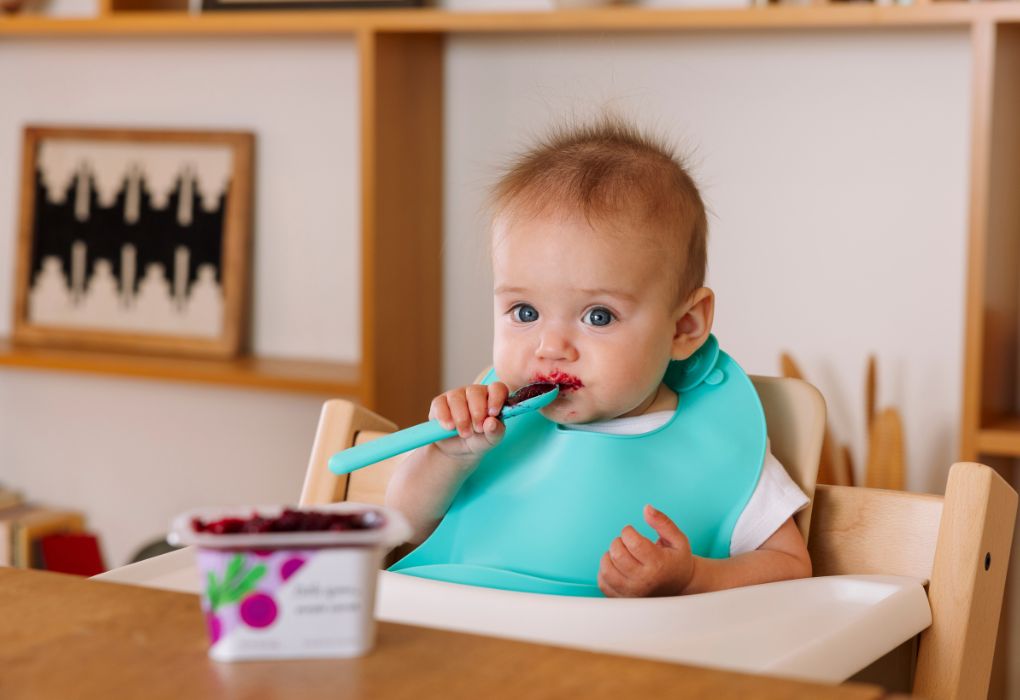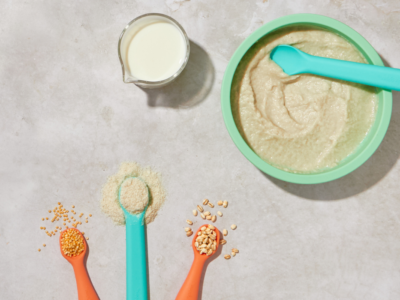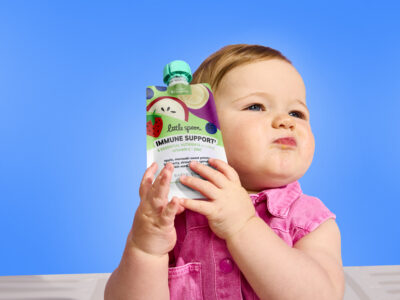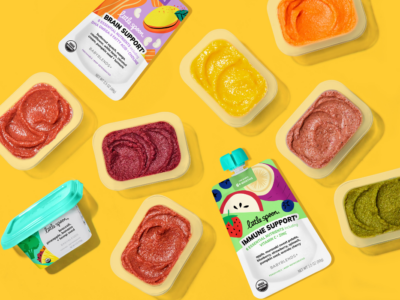My kids are older now, but as I reflect on my journey through the baby stage, I think about all the things I wish I’d known then that I know now.
The baby stage can feel like drinking from a fire hose. The constant changes, the rapid development—it’s a lot. And starting solids is no exception. When you’re in the trenches, you do what you can with what you know. That’s what I did, and I’m sure that’s what most parents do.
But looking back, here are the top 3 things I wish I had known when starting solids with my firstborn, James:
Gagging Is Normal—and Actually a Good Thing
One of the most surprising things to me was how much gagging is totally normal during those first few weeks of solids. As babies explore new textures, learn to move food around their mouths, and develop oral motor skills, gagging is part of the process.
The important thing to know is that gagging is not choking. It’s a protective reflex that helps your baby avoid choking. Their little bodies are actually built to keep themselves safe as they learn how to eat.
💡 Bonus Tip: You can support your baby before solids even begin. Let them mouth and chew on things like finger-shaped teethers, O-ball toys, or their hands. This builds strength and coordination that can help reduce the amount of gagging once solids start.
That said, too much gagging can lead to a negative association with food, which is why knowing what’s normal and getting support can really help.
Having a Plan (and Support) Makes a Huge Difference
When I started solids with James, I had no idea how many simple, helpful resources were out there to guide parents through this transition.
I wish I had known about tools like Little Spoon, which provides stage-based meals with safe textures and variety. I also wish I had access to the resources we now offer through Infant Insights, where we help parents feel confident about starting solids, avoiding picky eating, and building a well-rounded diet.
The truth is:
- There’s no one-size-fits-all approach
- You can introduce a variety of textures early
- Babies thrive when given opportunities to be independent eaters
- Parents thrive with a little support and encouragement
When you have guidance and a clear plan, the process feels less overwhelming and a whole lot more doable.
Your Baby Was Made for This
This one might be the most important of all.
Our babies are literally wired for this. From the moment they’re born, they’re building the skills they’ll need for feeding. Every time they reach for a toy, bring their hands to their mouth, or push up during tummy time—they’re developing the muscles and coordination for solids.
And as I mentioned above, their bodies know how to protect themselves. They were made to eat, explore, and learn.
As both a mom and a pediatric therapist, I’ve realized this powerful truth:
Babies need less of our intervention, not more.
They want control (just like we do!). Our job is to offer safe foods—like those recommended in each stage of Little Spoon’s Babyblends, or other whole foods with the right size and texture—and then let them explore.
When we step back and let them take the lead—whether it’s reaching for a banana slice or using a pre-loaded spoon—they gain confidence, curiosity, and joy at the table.
If you’re about to start solids and feeling nervous, remember:
✅ Gagging is normal
✅ Support makes all the difference
✅ Your baby was made for this
You’ve got this. And your baby is lucky to have you.
Trust your instincts—they’ll take you far.



